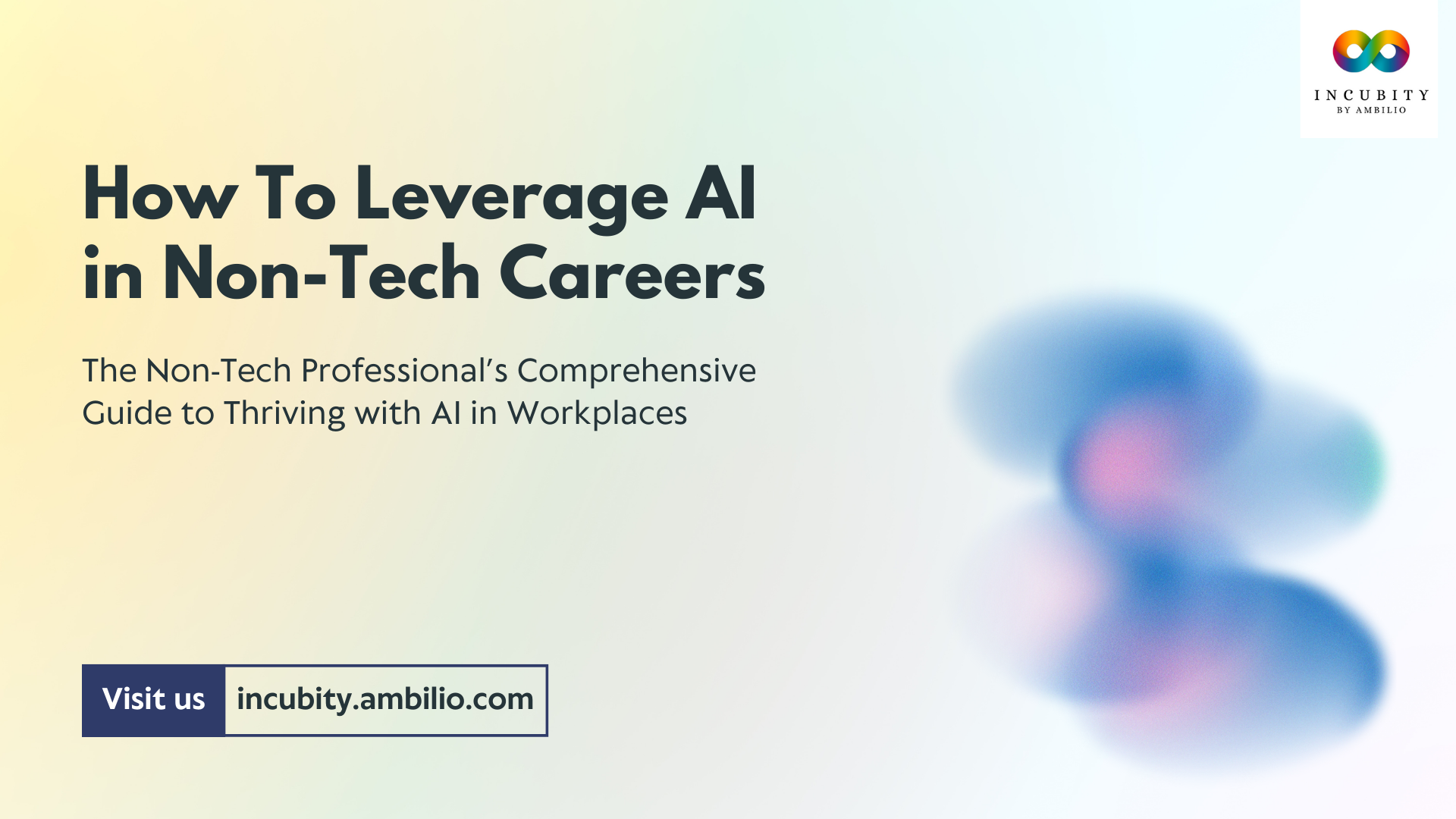Artificial Intelligence (AI) has become a transformative force across industries, reshaping how work is done and decisions are made. While AI’s growth is often associated with tech-heavy roles, its potential in non-tech careers is equally profound. Professionals in fields like marketing, healthcare, finance, and education can now benefit from AI tools that enhance efficiency, accuracy, and innovation. This article delves into how individuals in traditional roles can effectively incorporate AI into their work and offers guidance on how to prepare for this change.
AI’s Expanding Role in Non-Tech Fields
AI is no longer limited to programmers and data scientists. It is now accessible through user-friendly tools and applications that require minimal technical expertise. The integration of AI is driven by its ability to automate repetitive tasks, analyze large datasets, and generate insights that empower professionals to make better decisions.
For instance, marketers are using AI to create personalized campaigns based on customer data, while educators employ AI tools to tailor learning experiences to individual student needs. In finance, AI simplifies complex calculations and fraud detection, while in healthcare, it streamlines administrative workflows and supports diagnostic decisions.
The growing importance of AI means that professionals in traditional roles must adapt to remain competitive. This doesn’t necessarily mean becoming a programmer but understanding how to use AI effectively in their specific domain.
How Non-Tech Professionals Can Leverage AI
AI can be a game-changer in non-tech careers when used thoughtfully. Professionals must start by identifying how AI can address specific challenges or enhance existing processes in their field. Let’s examine a few examples:
1. Marketing
AI tools are redefining marketing by enabling targeted campaigns, predictive analytics, and content optimization. Marketers can harness AI to analyze customer behavior, generate dynamic ads, and create customized communication strategies that resonate with their audience. For example, AI platforms can identify emerging trends from social media data, helping marketers stay ahead.
2. Healthcare
In healthcare, AI simplifies scheduling, billing, and patient record management. It also assists in medical imaging and diagnostics, providing clinicians with data-driven insights. Administrative staff can use AI to manage resources effectively, ensuring that hospitals operate smoothly.
3. Finance
Financial professionals benefit from AI in areas like fraud detection, expense management, and investment forecasting. By automating repetitive processes such as data entry and report generation, AI frees up time for strategic analysis and decision-making.
4. Education
AI is transforming education by creating adaptive learning platforms that cater to diverse learning styles. Teachers can use AI tools to monitor student progress, identify gaps in understanding, and design personalized interventions. Administrative tasks, such as grading and attendance tracking, are also being automated.
Preparing for AI Integration in Your Career
To effectively use AI in traditional roles, professionals must invest time and effort in understanding the technology and its applications. Preparation involves several key steps:
1. Build AI Awareness
Start by understanding what AI is and how it can impact your industry. Familiarize yourself with common AI applications, such as chatbots, predictive analytics, and automated workflows. Read industry reports and case studies to see how peers are using AI successfully.
2. Identify Relevant AI Tools
Research tools specific to your domain. For example:
- Marketers can explore platforms like HubSpot and Hootsuite.
- Healthcare professionals might look into scheduling tools like Zocdoc or diagnostic systems powered by IBM Watson.
- Financial analysts can benefit from Tableau for data visualization.
- Educators can explore adaptive learning tools like Khan Academy.
3. Upskill Through Training
While you don’t need to become an AI expert, understanding the basics of how AI works is essential. Enroll in beginner-friendly courses on platforms like Coursera, edX, or LinkedIn Learning. Focus on learning how to use AI tools and interpret their results rather than diving into coding or algorithm development.
4. Embrace Data Literacy
AI relies heavily on data, so developing strong data literacy is crucial. Learn how to collect, clean, and interpret data relevant to your role. This includes understanding visualizations, trends, and the implications of AI-generated insights.
5. Collaborate with Tech Teams
If your organization has a dedicated AI or data science team, collaborate with them to better understand how AI can be implemented in your work. Technical experts can provide guidance on tool selection, integration, and troubleshooting.
Overcoming Challenges
Adopting AI in non-tech careers isn’t without challenges. Common barriers include a lack of technical knowledge, ethical concerns about data usage, and the fear of job displacement. Addressing these challenges requires:
- Continuous Learning: Stay updated on AI trends and advancements.
- Ethical Awareness: Understand the implications of AI, such as data privacy and algorithmic bias, and advocate for responsible AI use.
- Mindset Shift: View AI as a tool to enhance your role rather than a threat to job security.
Organizations also play a role by providing training and creating a supportive environment where employees can experiment with AI tools without fear of failure.
The Future of Non-Tech Careers with AI
The integration of AI into non-tech roles will continue to grow as technology becomes more accessible and affordable. Future advancements may bring even more user-friendly AI tools, enabling professionals to focus on creative and strategic aspects of their work while leaving repetitive tasks to machines.
For example:
- Marketing teams may use AI to predict trends with near-perfect accuracy.
- Healthcare professionals could rely on AI for real-time patient monitoring.
- Financial analysts might work alongside AI systems to simulate complex market scenarios.
- Educators could use AI to create virtual classrooms that adapt to every student’s needs.
Final Words
AI is no longer optional—it’s a critical skill for professionals in traditional roles. By understanding its applications, investing in upskilling, and maintaining a collaborative mindset, non-tech professionals can harness the power of AI to enhance their work. The key lies in preparation: building awareness, embracing learning opportunities, and proactively integrating AI into everyday tasks. As the workplace evolves, those who adapt to AI’s potential will find themselves not only relevant but thriving in their careers.



